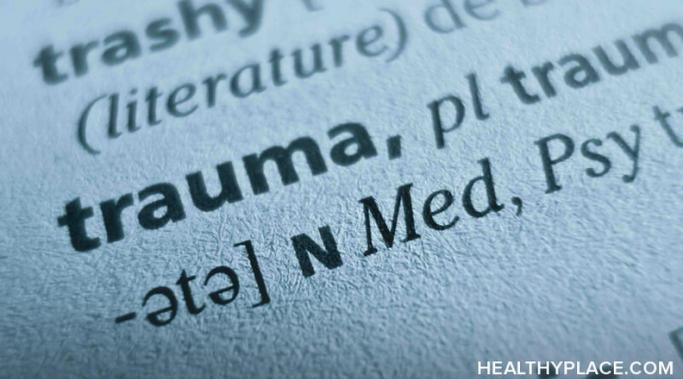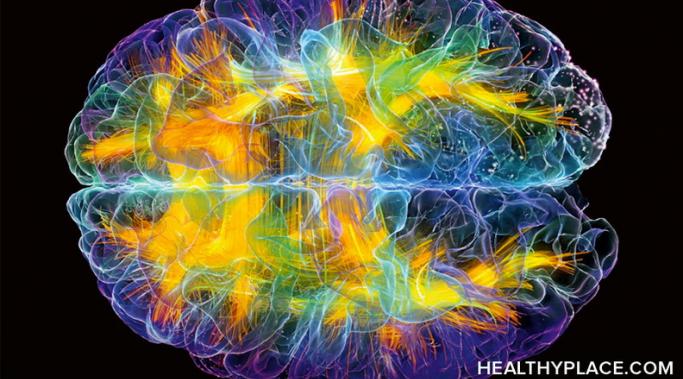If you already have PTSD, you should be wary of being exposed to media coverage of traumatic news events.
With the way our society is plugged into around-the-clock news, it would have been impossible for you to avoid some kind of coverage about the Boston Marathon bombing. Whether through radio, tv or the internet, the topic, images and details have played out relentlessly over the past ten days.
How has that made you feel? If you're experiencing amplified or renewed PTSD symptoms, there's a reason for that...
About PTSD
Trauma affects you to a degree, that's a given. But can you choose how trauma affects you? On Monday, our nation was faced, yet again, with a staggering attack in the midst of one of the most celebrated and community oriented events in Boston every year, The Boston Marathon. Faced with our constant vulnerability, it can be tough to learn to live in a world where you can do your best to be safe -- and still have zero guarantees.
What do you do when you don't know what to do? Last week, on my radio show, I interviewed Ashley Lambert-Wise, founder of BattlingBare.org, a non-profit whose mission is to raise awareness for PTSD and TBI (Traumatic Brain Injury) in the military.
As someone struggling with PTSD, you've probably had a nightmare or two that evokes either your direct traumatic experience or the feelings that went along with it.
Why do we have nightmares? What is their purpose? Is it possible to get them to stop?
There is a relationship between PTSD and OCD, but sometimes the obsessive-compulsive behaviors sneak up on you and so it's not so obvious. Have you noticed, since your trauma, that you have new, idiosyncratic behaviors, even ones that don't make sense? Do you clean (yourself or your home) obsessively? Does everything suddenly have to be perfect?
Following a trauma, it's normal for your behavior to change in response to the new experience you've had. The question is, how do you move past that?
I have a client (we'll call him A.) who said to me yesterday, about an action he needs to take to move forward, "I just don't want to do it. It's too painful, so I avoid it."
While avoidance is typical in PTSD recovery here's the problem: Nothing in recovery happens unless you make it happen. So what will happen if you continue to avoid? Nothing.
What to do when PTSD avoidance grounds your progress to a halt?
If you live with PTSD, then you definitely have had your share of angry outbursts. How could you not? Your fuse is small, your triggers large and your ability to go with the flow went out the window the day your trauma(s) occurred.
Is there hope for you to proactively manage your anger? You bet!
Recent developments in the field of neuroplasticity prove how your brain is hardwired and genetically designed to heal, change and rewire itself after all types of traumas, including brain injury and stroke. Research also explains very explicitly how your brain changes, which means it also illustrates how you can collaborate with your brain and support it's posttraumatic growth and development.
Have you ever noticed that the more pain you feel the more isolated you become in it? Have you noticed that when you try to explain how your pain feels words just don’t seem to suffice? Do friends, families and professional practitioners zone, check out when you try to describe the pain you are now or have been in?
It’s very tough to translate your personal experience into words others can understand. There are, however, ways to make it easier.
The truth is every experience you have - both the bad and the good - impact your brain in important ways by creating a physiological environment as well as neural pathway structures.
You already know how trauma has negatively impacted you and led to uncomfortable and even painful feelings and body experiences. Have you considered the beneficial impact of positive experiences and how they can help you feel better?
The majority of survivors begin PTSD recovery in traditional talk therapy. It's a natural place to start. As a society, we're very in tune with 'therapy' and the idea of talking to a professional when something is wrong emotionally and we don't know how to fix it. But is talk therapy really effective in healing PTSD? The answer is, NO. Here's why...








